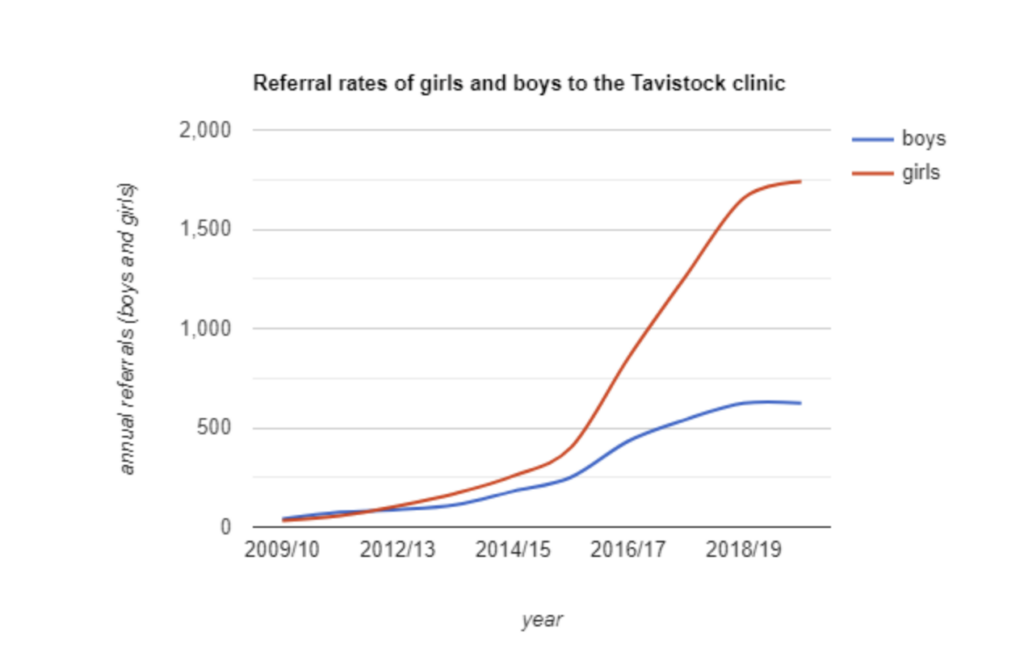The British Government is helping to fund a widespread international attack on free speech by trying to disrupt online advertising revenues for many right-of-centre publications. The state money is funnelled through the Foreign, Commonwealth and Development Office to a British outfit called the Global Disinformation Index (GDI). This circulates a ‘blocklist’ of mostly conservative publications, which in the U.S. includes the American Spectator. The GDI makes no secret of wanting to put these news publishers out of business. It says its goal is to “disrupt their advertising-funded business models by encouraging brands, suppliers and ad tech vendors to blocklist them”.
Apart from the support of the British taxpayer, the GDI is funded by the U.S. State Department via the National Endowment for Democracy and a group of wealthy foundations including the left-wing Knight Foundation. It also boasts the support of a number of journalists on its Advisory Panel, including Anne Applebaum, as well as Tortoise Media, an online news publisher, and senior personnel at the Poynter Institute and the Reuters Institute of Journalism. The Washington Examiner reports that the GDI has at least 2,000 websites on its exclusion list.
The GDI recently published a list of the 10 ‘riskiest’ and ‘least risky’ U.S. news websites. The 10 riskiest all belong to right-of-centre news publishers including the American Spectator, the American Conservative, Newsmax, the Federalist, Real Clear Politics and the Daily Wire. The least risky sites include the New York Times, USA Today, AP News, BuzzFeed News and the Washington Post. Interestingly, the Murdoch-owned New York Post is on the riskiest list. It was the only mainstream newspaper in the U.S. that publicised the Hunter Biden laptop story, ahead of the U.S. presidential election in 2020. This information was blocked by most social media companies at the time, and recently Applebaum said she didn’t think the laptop story “qualified as a major story”. Bizarrely, the Huffington Post is included in the 10 ‘least risky’ category, even though it published stories saying the laptop story was a “smear campaign” and had probably originated in Russia. Surely, that’s misinformation?
Also in the 10 riskiest is Reason, which Senior Editor Robby Sauve isn’t happy about. As he wrote last week, Reason was not given an opportunity to respond to any of the GDI’s reservations about it before it included it on its ‘blocklist’, has not made its full evaluation publicly available and refused to respond to requests from Robby for comment. He concludes:
If a self-described disinformation-tracking organisation wants to loudly proclaim, in partisan fashion, that advertisers should only use mainstream and liberal news sites, it has that right. But advertisers should take note of its obvious bias, total lack of transparency in detailing media outlets’ scores, and other methodological issues. And the State Department certainly has no business helping to fund it.
One of the reasons the GDI poses such a threat to free speech is that its definition of ‘disinformation’ is unusually capacious. It doesn’t just mean information that’s false and disseminated by people who know its false and have malevolent intentions. It has broadened the definition to include what it calls “adversarial narratives”. Thus the use of the term ‘illegal alien’ by Breitbart in its crime reporting is classified as disinformation and, presumably, any news website using it risks appearing on the ‘blocklist’. (The correct term, obviously, is ‘undocumented immigrant’.) ‘Illegal alien’ is ‘adversarial’, we’re told, because it transcends “simple true verses false dichotomies”, by which I think GDI means it’s legitimate to classify the use of the term as ‘disinformation’ even if it’s applied to somebody who literally is an illegal alien. “Each individual story would likely fact check to be technically correct, in that the crime did happen and the alleged perpetrator was likely an undocumented immigrant,” reports Danny Rogers, the Executive Director of the GDI, when referring to the suspect stories in Breitbart. Nevertheless, websites using the term should be demonetised because it is integral to an “adversarial narrative” that poses a “risk of harm to vulnerable populations or institutions”.
What institutions is the GDI classifying as “vulnerable”? The Democratic Party? Is Anne Applebaum, a regular contributor to the Spectator, really advising an organisation trying to suppress journalism that poses a threat to vulnerable institutions? In 1972, would the Nixon Whitehouse have been classed as a vulnerable institution and would the GDI, had it been around back then, have tried to stop Carl Bernstein and Bob Woodward publishing an “adversarial narrative” about the then President?
“Vulnerable populations” is more straightforward. It’s all the usual suspects, including the “LGBTQ+ community”. For those unclear about what sort of disinformation poses a “risk of harm” to that community, the GDI has helpfully published some examples, such as the following:
Increasing numbers of young people who identify as transgender is proof that identifying as such is a social choice rather than a naturally occurring state.
So, attributing the rising number of young people identifying as transgender to social factors – as the respected medical researcher Dr. Lisa Littman has done (see this peer-reviewed paper, for instance) – is disinformation? I wonder if the researchers at the GDI, who’ve presumably carried out an exhaustive review of the research literature on gender dysphoria, can explain why the rise in teenage girls identifying as transgender is so much higher than the rise in teenage boys? After all, if gender dysphoria is “a naturally occurring state”, why does it disproportionately affect women? This can be seen in referrals to the Tavistock clinic between 2009/10 and 2018/19. According to data collected by Transgender Trend: “In less than a decade there has been a 1,460% increase in referrals of boys and a staggering 5,337% increase in girls.”

Other material the GDI seeks to block includes anything that challenges the scientific or medical ‘consensus’ on climate change and the mRNA vaccines – describing them as “experimental” is disinfo, apparently. Questioning the prevailing orthodoxy on these subjects, according to the GDI, creates a “risk of harm by undermining trust in science”. To mitigate this risk, the GDI says its mission is clear: “to defund online sources of disinformation”
Of course, all this is a blatant attack on free speech – trying to create a world where only the opinions and biases of the Washington Post, the BBC and the Guardian are allowed to flourish. “It’s devastating,” says Mike Benz, the State Department’s ex-Deputy Assistant for Internal Communications and Information Policy. He told the Washington Examiner that “the implementation of revenue crushing sentinels like Newsguard, Global Disinformation Index and the like has completely crippled the potential of alternative news sources to compete on an even economic playing field with approved media outlets like CNN and the New York Times.”
However, the fightback seems to have started. The Daily Sceptic recently reported that the Trusted News Initiative (TNI), a free speech-killing outfit run by a number of media operations including the BBC, Reuters, Associated Press and the Washington Post, has been hit with an antitrust lawsuit in Texas. This charges that the consortium suppressed “wholly accurate and legitimate reporting” to further its members’ economic interests. The lawsuit was filed on behalf of a number of online publishers by the late President Kennedy’s nephew, Robert Kennedy Jr. His suit alleges that suppressing online information that challenges prevailing narratives – ‘adversarial’ content, you might call it – deprives people of vital information about matters of legitimate public concern including the lockdowns, safety information about the mRNA vaccines and the Hunter Biden laptop story.
TNI connects Big Media with Big Tech – its members include Google and Facebook – and acts as a gatekeeper for what it counts as dis and misinformation. It’s Big Tech members remove, or seek to remove, so-called dis and misinformation on social media platforms such as Facebook, LinkedIn and Twitter, although the latter has recently become a less willing partner in attempts to suppress dissent. The Kennedy lawsuit says it is taking legal action to “defend the freedom of speech and the press”.
Proving damages in an antitrust case is not without considerable difficulties in the U.S. courts, but another line of attack would be to sue one of these self-styled gatekeepers for libel in the U.K. The GDI makes no secret of the fact that it is accusing many right-of-centre news publishers of disseminating “intentionally misleading” stories that are, in some cases, motivated by financial self-interest. Other stories are said to be “aimed at fostering long-term social, political or economic conflict”, as if that could be the only possible motive for challenging woke dogma on issues like the surge in gender dysphoria among teenage girls.
British libel law is partly based on past notions of a Gentleman’s Honour. An action can be brought for any published statement which is alleged to defame and cause loss of trade or reputational damage. Unlike the rest of British law, where initial innocence is assumed, the alleged defamatory statement is presumed to be false, unless the defendant can prove it to be true. Damages are awarded, sometimes on an aggravated basis, for any financial losses that have resulted from the libel. The GDI must be aware of this risk, not only to itself but also to the institutions that fund it, given that it’s registered in the U.K. Many third party funders and supporters are identified on its website and it’s possible that an aggressive litigant(s) could seek to add them to any writ.
Your correspondent is an old school journalist and of course would not wish to encourage anyone to sue in the British libel courts. But it would be interesting to see if a justification of suppressing content and labelling it disinformation, not because it’s false, but because it supposedly poses a threat to ‘at risk’ identity groups and vulnerable institutions would make headway on the brutal adversarial stage of the Royal Courts of Justice.
Chris Morrison is the Daily Sceptic’s Environment Editor.














To join in with the discussion please make a donation to The Daily Sceptic.
Profanity and abuse will be removed and may lead to a permanent ban.